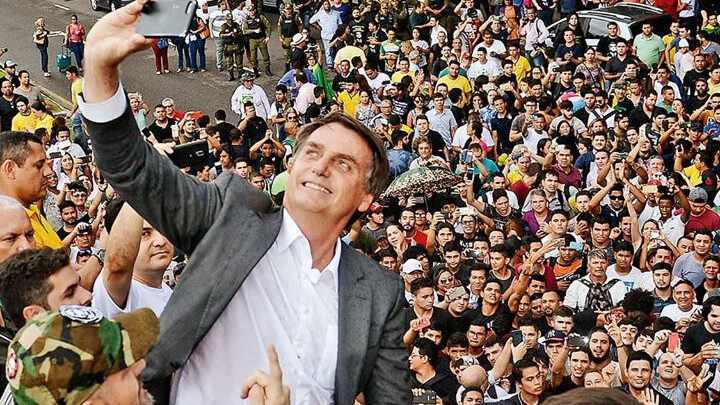Bolsonaro's Brazil
The controversial, right-wing, former army captain, Jair Bolsonaro, won a comfortable election victory to become Brazil’s 38th president. We look at how he could reshape Latin America's largest economy and the impact for investors...

Dubbed the ‘Brazilian Trump’, Bolsonaro is known for politically incorrect attacks on blacks, gays and other minorities. But, despite a controversial campaign, which included him being stabbed, he took the elections by storm, winning the second round by a comfortable margin. Over the next two months investors will get indicators of his policy plans before he assumes power in January 2019.
Investor favourite
In the week following Bolsonaro's surprisingly strong first-round showing, the market responded positively, with the real jumping 2% against the dollar and local equities gaining almost 5%. However, it fell slightly once his victory was announced, confirming the old investor adage: buy the rumour, sell the news. Investors are encouraged by Bolsonaro’s campaign promises to reform the central bank, fix the fiscal deficit and reduce the size of the state. His choice of Paolo Guedes, an orthodox Chicago-trained economist, to act as a type of super finance minister that would have control over all economic policymaking is particularly appealing to investors.
"Buy the rumour, sell the news…"
The markets weren’t just buoyed by the success of the retired army captain. His party and the right in general, swept to victory in the congressional elections. Bolsonaro’s Social Liberal Party jumped to 52 representatives from 8, making it the second-largest party in Brazil’s 513 seat congress. Other right-wing parties also did well, gaining more than half of the seats, as the traditional centrist groups took heavy losses. That raises hopes that he will have the support to carry out the economic reforms that Brazil needs. With a fiscal deficit of 8% to GDP and a 13% unemployment rate, investors – and voters – seem desperate for a leader strong enough to override the corrupt, fractured congress and deliver change.
Difficult path ahead
Yet William Jackson, the chief emerging markets economist at Capital Economics isn’t sure Bolsonaro is in that position. “The bar for major reforms to tackle the large fiscal deficit is high. It’s not clear that the support Bolsonaro is building extends to painful measures to cut spending. And some of the more difficult changes, such as to pension provision, will require a highly unstable coalition of at least 11 parties to change the constitution.” Indeed, Bolsonaro and investors may well find that winning the election was the easy part. Brazil is a notoriously difficult country to govern never mind reform.